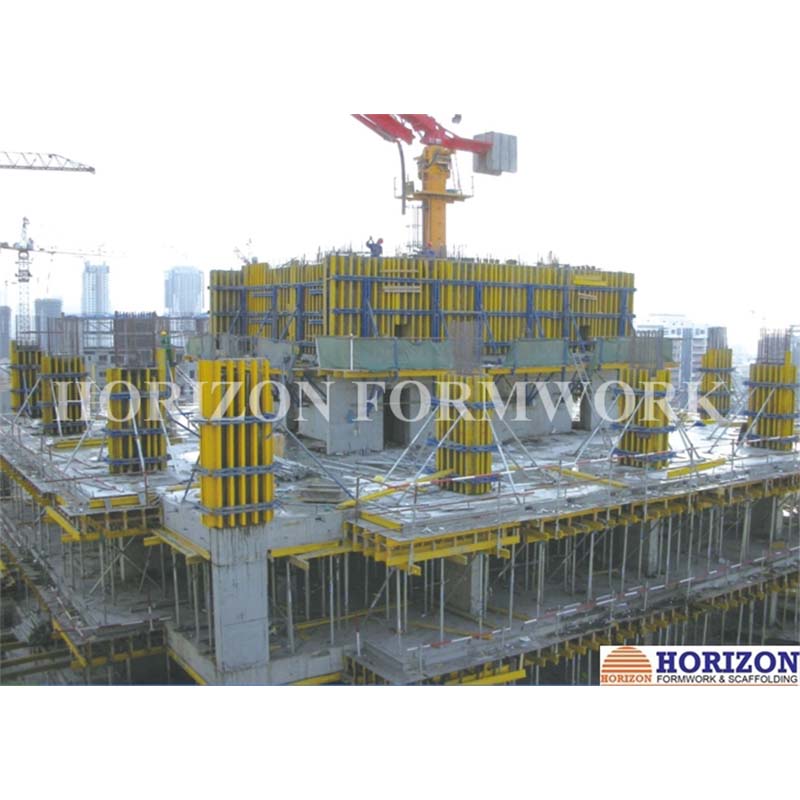Jul . 29, 2024 21:43 Back to list
Exploring the Advantages and Innovations of Reusable Formwork Systems in China's Construction Industry
The Rise of Reusable Formwork in China A Sustainable Solution for Modern Construction
As urbanization continues to skyrocket in China, the construction industry is under immense pressure to adopt more sustainable practices. One significant innovation that has emerged to address both environmental and economic challenges is reusable formwork. This building technique not only enhances efficiency but also reduces waste and minimizes the ecological footprint of construction projects.
Reusable formwork, also known as modular formwork, refers to a system of temporary molds used to shape concrete structures during the setting process. Traditionally, formwork has been made from materials like plywood, which are often disposed of after a single use. In contrast, reusable formwork is designed to be utilized multiple times, often made from durable materials such as steel or high-quality plastics. This shift from single-use to reusable systems represents a marked change in how construction projects are approached across China.
The Rise of Reusable Formwork in China A Sustainable Solution for Modern Construction
Moreover, the use of reusable formwork contributes to sustainability goals. China's rapid development has often led to environmental degradation, but the construction industry is increasingly mindful of its impact on the planet. Reusable formwork helps to minimize waste by eliminating the need for timber and other disposable materials, subsequently reducing deforestation and resource depletion. Furthermore, the durability of materials used in these systems means they can withstand numerous cycles of use without losing structural integrity, ensuring a lower environmental impact over time.
china reusable formwork

The rise of reusable formwork also aligns with China's broader commitments to sustainability. In recent years, the government has implemented strict policies aimed at reducing carbon emissions and promoting green construction practices. The adoption of reusables not only meets regulatory requirements but also appeals to an increasingly environmentally conscious public. As more consumers and clients prioritize sustainability, companies that adopt reusable formwork can enhance their marketability and foster a positive brand image.
In practice, numerous construction projects across China are already reaping the benefits of reusable formwork. From residential buildings to large-scale infrastructures like bridges and tunnels, the integration of this technology is becoming more common. Notable constructions have showcased how reusable formwork can streamline processes, improve safety conditions, and enhance the overall quality of concrete applications.
Looking ahead, the future of reusable formwork in China seems bright. With continuous advancements in materials science and engineering, the possibilities for enhancing the functionality and efficiency of these systems are vast. Emerging technologies such as 3D printing and smart monitoring systems could further revolutionize how reusable formwork is designed and utilized, leading to even greater efficiencies in the industry.
In conclusion, reusable formwork represents a promising development in the Chinese construction landscape. By offering a sustainable, cost-effective alternative to traditional building methods, it encapsulates the industry's shift towards greener practices. As the global focus on sustainability intensifies, China stands at the forefront of this evolution, showcasing its commitment to innovation in construction while balancing economic growth with environmental stewardship. The continued adoption of reusable formwork could serve as a crucial step towards shaping a more sustainable future for the country’s urban infrastructure.
-
High-Quality U Head Jack Scaffolding – Reliable Scaffolding Jack Head Manufacturer & Factory
NewsJul.08,2025
-
High-Quality I Beam H20 Leading Timber Beam H20 Material Factory, Exporters & Manufacturers
NewsJul.08,2025
-
High-Quality Powder Coating Steel Formwork - Durable & Corrosion Resistant Solutions
NewsJul.07,2025
-
Inclined Column Formwork Supplier – Durable & Precise Solutions for Unique Structures
NewsJul.07,2025
-
High-Quality Water Stop Solutions Trusted Water Stop Company & Suppliers
NewsJul.07,2025
-
High-Quality Formwork Material Supplier Reliable Manufacturer & Factory Solutions
NewsJul.06,2025